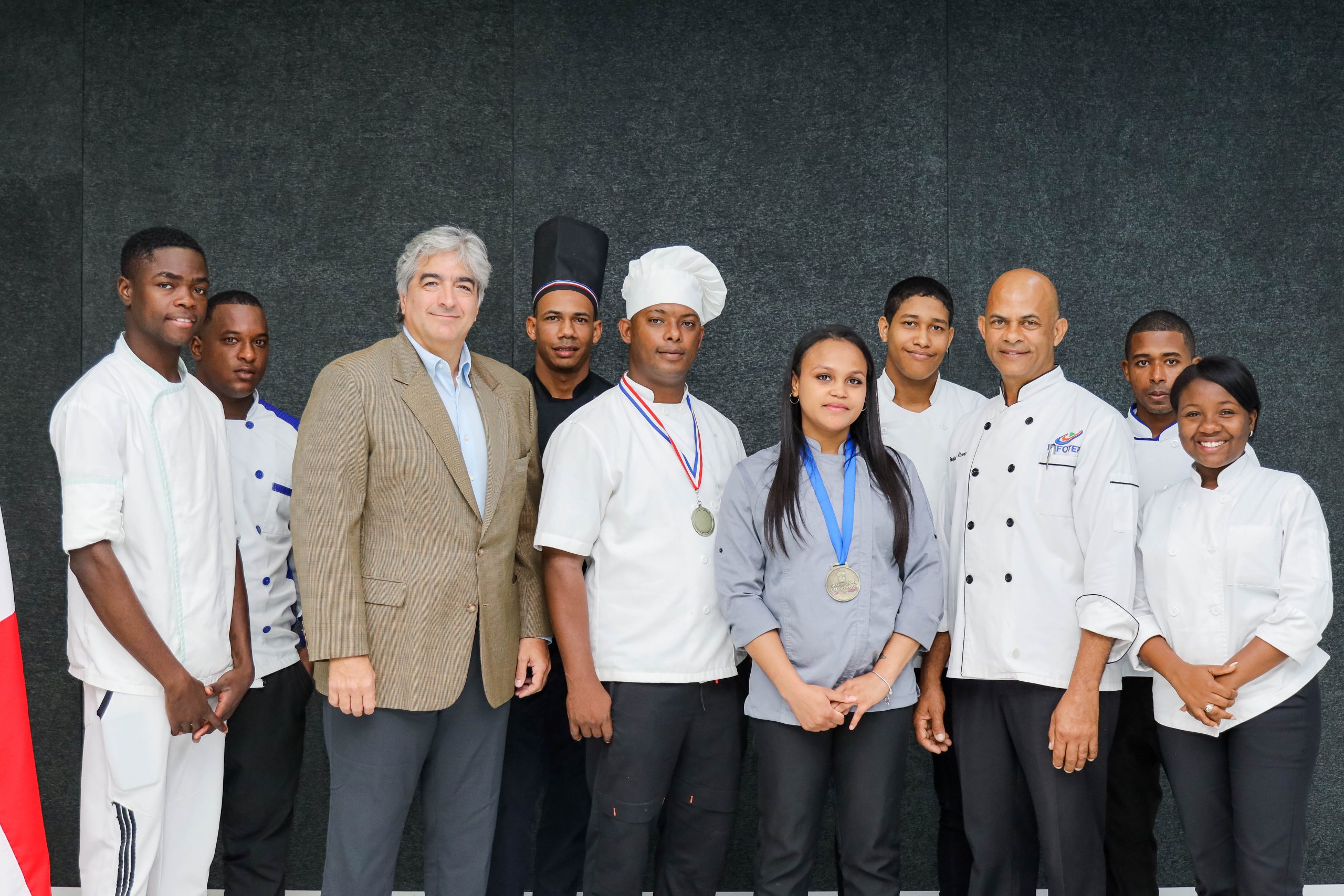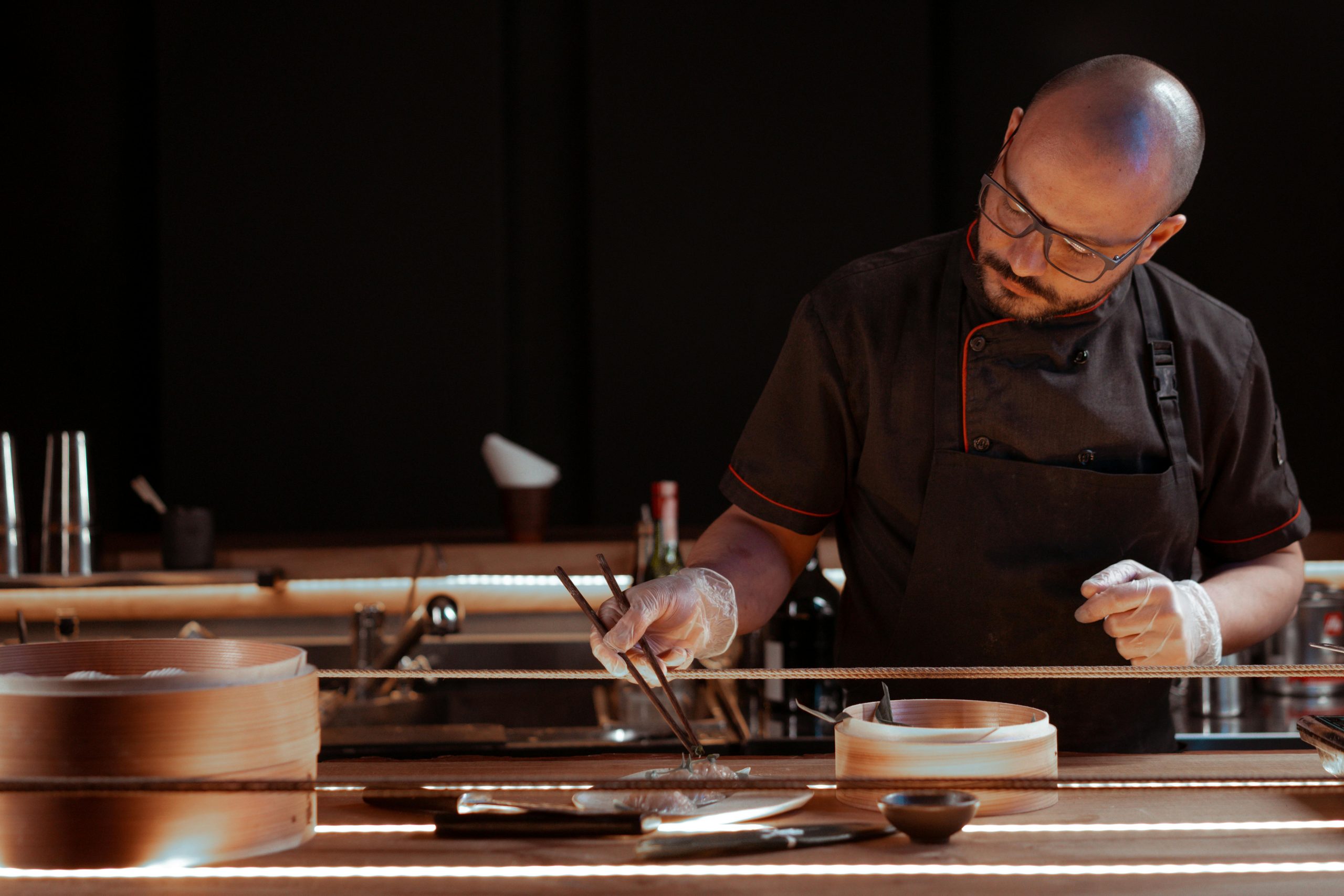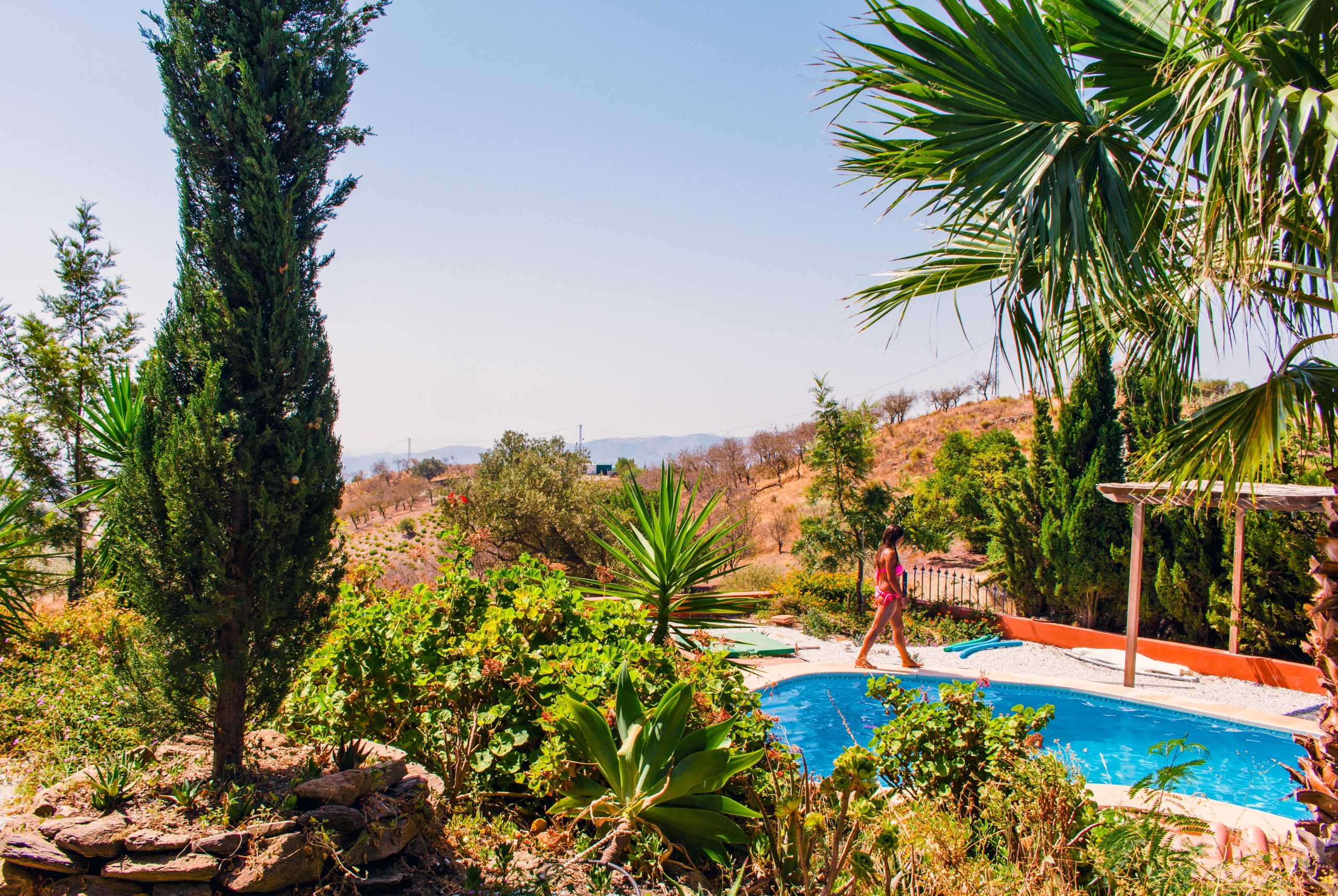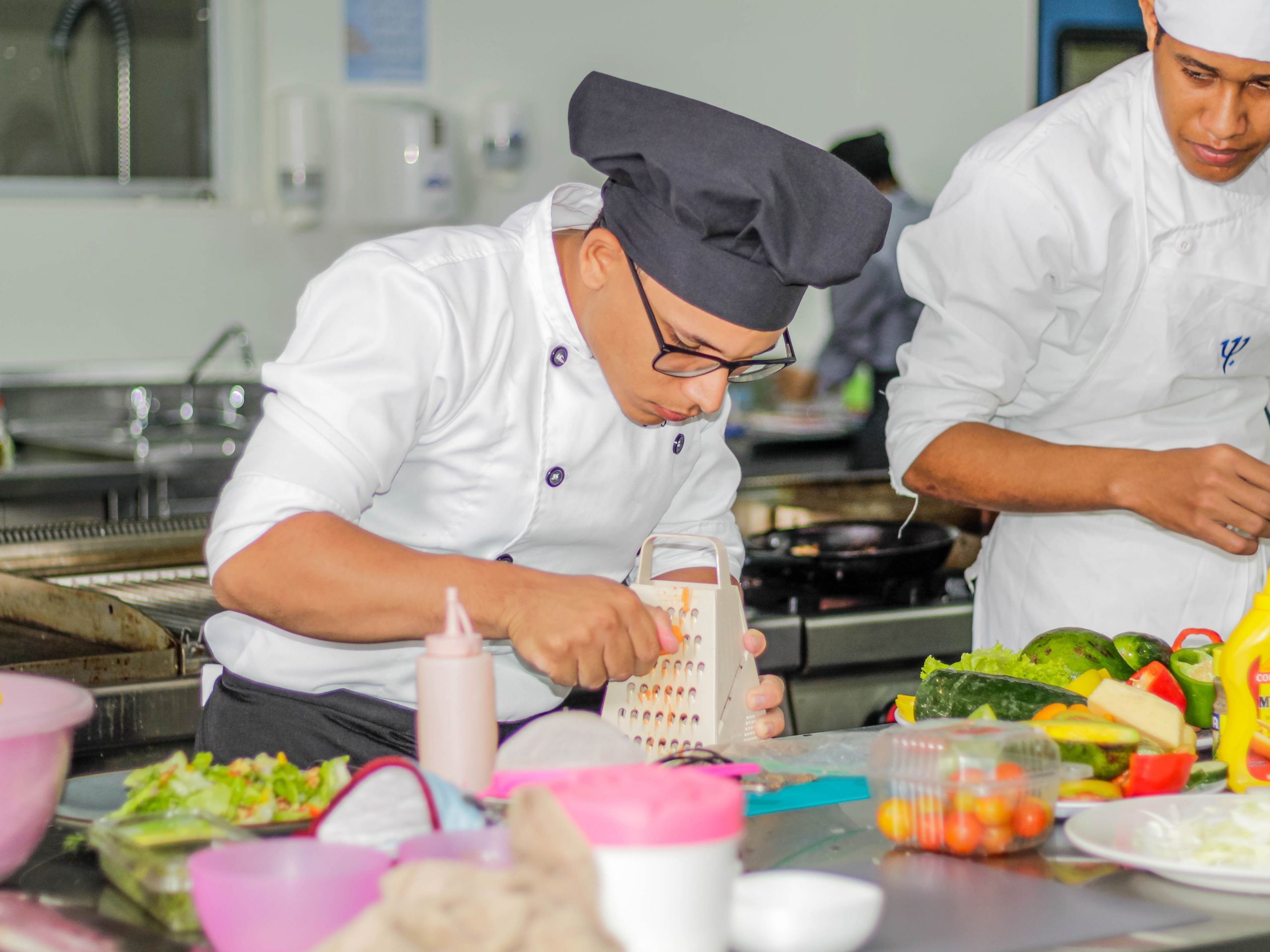Emerging talents shine in the 2023 Creative Cooking Diploma
An initiative that turns dreams into realities and takes an extraordinary turn in the Dominican gastronomic future. It is with great joy and satisfaction that I share with you the conclusion of the fourth edition of the Creative Cooking Diploma, an initiative that I proudly support and sponsor to boost Dominican culinary talent. This project, developed in collaboration with the National Institute of Technical and Vocational Training (INFOTEP), has proven to be a breeding ground for exceptional culinary skills and has left an indelible mark on the gastronomic scene of the Dominican Republic. This year, we had the pleasure of witnessing a special milestone: the victory of a woman, Katy Paola Gil, who stood out as the well-deserved winner of this edition. In a clear demonstration of the growing female presence in the Dominican culinary scene, Kathy not only takes home the title of champion but also a valuable scholarship to participate in an advanced culinary techniques workshop at the renowned Basque Culinary Center in Spain. I am proud to be a part of this transformative experience for 25 young people from the Eastern region of the Dominican Republic, who, with dedication and passion, have elevated their culinary skills to new heights. The conclusion
Trends in gastronomy in 2024: flavors of the future
For 2024, the gastronomy industry is envisioned as a culinary journey filled with exciting innovations and discoveries. From revolutionary techniques to exotic ingredients, the culinary scene is undergoing a remarkable transformation. Therefore, I am pleased to offer a detailed analysis of the trends that will shape the pace of taste preferences during this period. The rise of eco-friendly gastronomy Environmental awareness has permeated every aspect of our existence, and gastronomy is not exempt from this trend. In 2024, there is a noticeable increase in the demand for sustainable food options and the adoption of environmentally friendly culinary practices. According to the EcoCuisine gastronomic trends report, 78% of consumers are actively seeking restaurants that integrate eco-friendly practices. The revolution of alternative foods With a growing focus on health and ethics, alternative food options are experiencing a significant increase in popularity. According to data from the World Alternative Food Association, it is projected that sales of vegetarian and vegan products will represent approximately 20% of the global food market by the year 2024. Furthermore, Mintel research indicates that 65% of consumers are willing to try options that replace traditional meat. Culinary technology The way we prepare and enjoy food is being transformed by technology. From artificial intelligence-powered kitchen robots to
New Year Experiences Around the World
As the year comes to a close, we can't help but reflect on the unique experiences that New Year brings in different parts of the world. Traveling during these times is more than just a celebration; it's a reminder of the cultural diversity that enriches our lives. From the dazzling lights in Sydney to the serene reflection in Kyoto, every corner of the globe contributes its uniqueness to this global festivity. Sydney, Australia: luminous display on the Harbour Bridge In vibrant Sydney, Australia, the arrival of the New Year is celebrated with a display of fireworks over the iconic Harbour Bridge and Opera House. This event attracts millions of spectators who gather to witness an unparalleled light show. The question that arises is simple yet intriguing: How can the city make the sky even more impressive than it already is? Rio de Janeiro, Brazil: party on the sands of Copacabana Our next destination takes us to the golden beaches of Rio de Janeiro. Brazil, famous for its carnival, doesn't fall short on New Year. On Copacabana Beach, millions of people gather to participate in a feast of music, dance, and offerings, marking the beginning of a new cycle with an explosion of energy that
Travel Trends 2024
The world of tourism is like a canvas constantly evolving, with each passing year bringing new strokes of experiences and destinations. After dissecting the travel trends unveiled by Amadeus, a leader in the travel industry, this article takes pleasure in highlighting the trends that will shape the tourism landscape in 2024. Generative Artificial Intelligence (GAI) at the heart of the travel experience Generative Artificial Intelligence (GAI) is gaining ground in the tourism sector in 2024, translating into more personalized and efficient travel experiences. Instead of relying on filters on search sites, travelers can now interact with GAI-based chatbots, such as Expedia's new ChatGPT plugin. Acting as a virtual travel assistant, it provides instant hotel recommendations and itineraries with links for booking. This evolution in travel planning offers a more intuitive and personalized experience for consumers. The rise of music tourism After the social isolation of the pandemic, music has become a powerful medium of connection. Music tourism is experiencing a surge, with artists like Coldplay and Taylor Swift leading the charge. The connection between musical events and the increase in flight searches and bookings is evident. For example, Coldplay's announced concerts in Romania and Greece for 2024 had a significant impact on flight searches
How Hotels Prepare for the Christmas Peak Season
The Christmas season marks a period of intense activity for the hotel industry, as families and friends embark on journeys to celebrate the festivities. According to an article from Travel Wise, a significant increase in demand has been recorded during the Christmas and New Year season in prominent global destinations. Specifically, the global hotel occupancy rate has already reached 23%, representing a 10% increase compared to the same period last year, as reported by Travel & Tour. This growing demand underscores the importance for hotels to implement key strategies to ensure an exceptional experience for their guests during this special season. Below, I detail the essential practices that hotels adopt to stand out and efficiently respond to the Christmas demand. Facility optimization As a first step, hotels must ensure that their facilities are impeccable to welcome guests during the Christmas season. This process includes the cleaning and disinfection of rooms, the maintenance of common areas, and the incorporation of decorative elements in line with the festive spirit. Special offers and promotions With the aim of attracting guests, hotels implement exclusive offers and promotions during the Christmas season. These offerings may include discounts on rates, accommodation packages with complimentary breakfast, or free Christmas activities. Additional staff hiring To meet
Investment opportunities in sustainable tourism
Tourism represented approximately four percent of the global economy before the outbreak of the COVID-19 pandemic. During 2020-2021, the sector experienced significant losses, including a marked decline in capital investment, which included foreign direct investment. Since then, global tourism has been recovering slowly but steadily, returning to pre-pandemic levels. According to the World Tourism Organization (UNWTO), investments are crucial for the recovery and future growth of tourism, aligned with Agenda 2030 and the Sustainable Development Goals. Through its recent 2022 Tourism Investment Report, it sheds light on an uneven recovery landscape and the urgent need to redesign our investment strategies focusing on education, sustainable infrastructure, innovation, and entrepreneurship. The report highlights that while tourism has shown signs of recovery, with a 5.3% increase in tourist arrivals in 2021, foreign direct investment (FDI) has remained low. In this regard, FDI in tourism decreased in 2021 and continued its decline in the first half of this year, despite the significant increase in air traffic in Europe. This disparity indicates that, although the demand for travel has improved, investments in the sector have not followed the same pace, posing a critical challenge that demands our attention. Despite this scenario, the report points out that investment is
The Christmas Travel Experiences That Travelers Seek
In the dynamic travel industry, trends constantly shift and evolve. According to Airbnb, the most sought-after destinations for this year-end holiday season offer a fascinating insight into the preferences of Latin American and global travelers alike. From tropical getaways to urban explorations, let's delve into some of the standout trends. Dreamy destinations: from Osaka to Rio de Janeiro This winter, travelers' attention is drawn to dreamy destinations in Asia-Pacific and South America. Cities like Osaka, Japan, and Rio de Janeiro, Brazil, are capturing the interest of those seeking unique experiences. The easing of restrictions in Japan has put Osaka on the map, while Rio de Janeiro continues to shine as a South American gem. Moreover, the variety of destinations such as Hanover, Germany, and Muang Pattaya, Thailand, highlights the diversity of modern travelers' preferences. This phenomenon reflects the growing openness to explore unconventional destinations and immerse oneself in new cultures. Families on the move: Tokyo, Rio de Janeiro, and more This year, adventurous families are ready to explore from the vibrant streets of Tokyo to the sunny beaches of the Bahamas. Destinations like Rio de Janeiro and São Paulo in Brazil, along with Crucecita in Mexico, have captured the attention of those seeking both cultural
Tourism 2024: navigating between challenges and opportunities
On the horizon of tourism for 2024, perspectives emerge as promising as they are challenging. The demand for sustainable tourism, with a focus on conserving natural environments and local culture, is expected to continue its ascent. Digitalization and the implementation of technologies such as artificial intelligence (AI) are transforming the visitor experience. However, this scenario also poses a crossroads for the sector: balancing the surge in demand with the urgent need to preserve the environment and, crucially, adapt to geopolitical tensions. Surge in demand and environmental sustainability According to the second World Tourism Barometer by the World Tourism Organization (UNWTO), international arrivals reached 80% of pre-pandemic levels in the first quarter of 2023. With 235 million tourists undertaking international trips during this period—more than double that of 2022—these figures reveal that, despite past challenges, tourism is regaining its vitality. However, this increased demand also underscores the urgent need to address environmental sustainability. In this context, a crucial question arises: How can the tourism industry meet growing demand without compromising natural resources and the cultural integrity of destinations? Digitalization, AI, and enhancement of visitor experience Simultaneously, digitalization and artificial intelligence have become key elements in the evolution of tourism. According to experts in an article
Creative Cooking Diploma 2023
In the dynamic world of gastronomy, I am pleased to announce with great enthusiasm the arrival of the third edition of the Creative Cooking Diploma 2023, a project that goes beyond teaching and becomes a catalyst for opportunities for Dominican youth. This program, born as a vision to empower young enthusiasts of gastronomy, has become a platform to discover and nurture local talent. By supporting this diploma, my goal is to provide these young individuals not only with advanced culinary skills, but also to open doors to a future where their creativity can shine on the world gastronomic stage. The initiative to send the most outstanding student to the prestigious Basque Culinary Center in Spain continues, offering a unique experience that transcends geographical and cultural boundaries. This year, as in previous editions, we seek to highlight innovation, passion, and a commitment to excellence in the kitchen. I hope that this diploma serves as a springboard to new horizons, new connections, and, above all, to the flourishing of Dominican talent on the international stage. By continuing to support initiatives like this, we contribute not only to the individual development of participants but also to the enrichment of the rich Dominican culinary heritage. Welcome to the
The Growing Demand for Vegan Options in the Gastronomy Industry
At the crossroads of culinary innovation and evolving consumer preferences, the gastronomy industry finds itself in an unprecedented transformation. In this article, I am pleased to address the growing demand for vegan options, a phenomenon that extends beyond being a passing trend and solidifies itself as an essential element for the future of the sector. According to a report by EMR Expert Reports, the vegan food sector recorded a significant value, surpassing $24.59 billion in 2022. Projections indicate steady growth, with an estimated CAGR of 10.1% between 2023 and 2028. It is anticipated that by 2028, this market will have exceeded $43.8 billion, showcasing sustained momentum in the preference for such food options. Similarly, data from Research and Markets confirms this trend, revealing that the vegan food market reached a value of over $37.93 billion in 2022, projecting robust growth with the expectation of reaching over $71.26 billion by the year 2030. With that said, the growth of vegan cuisine in the gastronomy industry is driven by several factors, including the rise in awareness of healthy diets, growing concerns about sustainability and the environment, as well as the integration of technological advances in food, that have led to the development of plant-based alternatives










